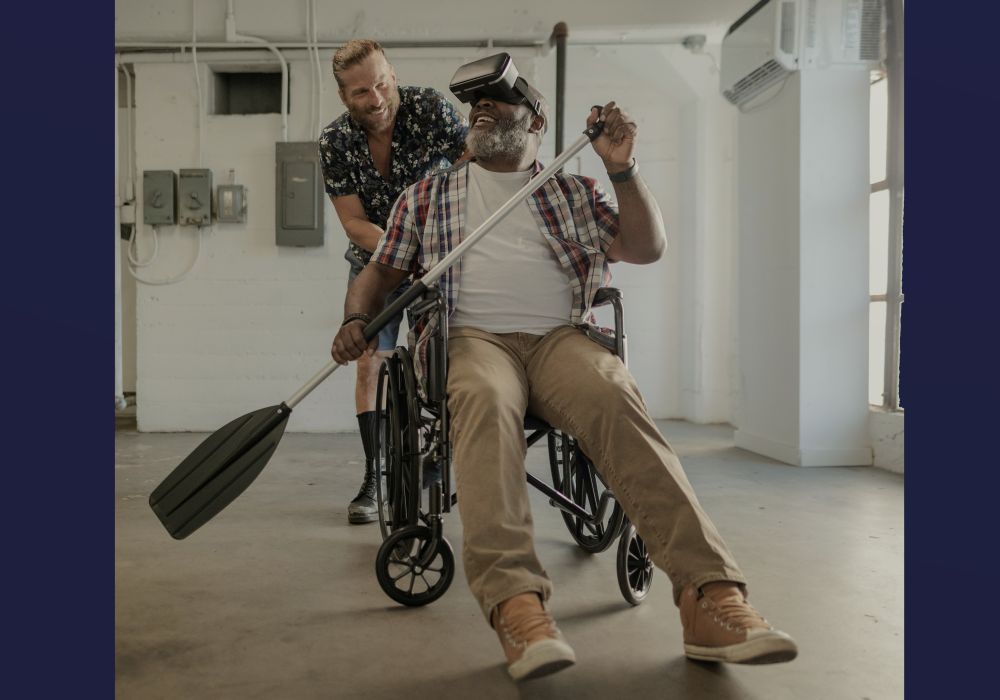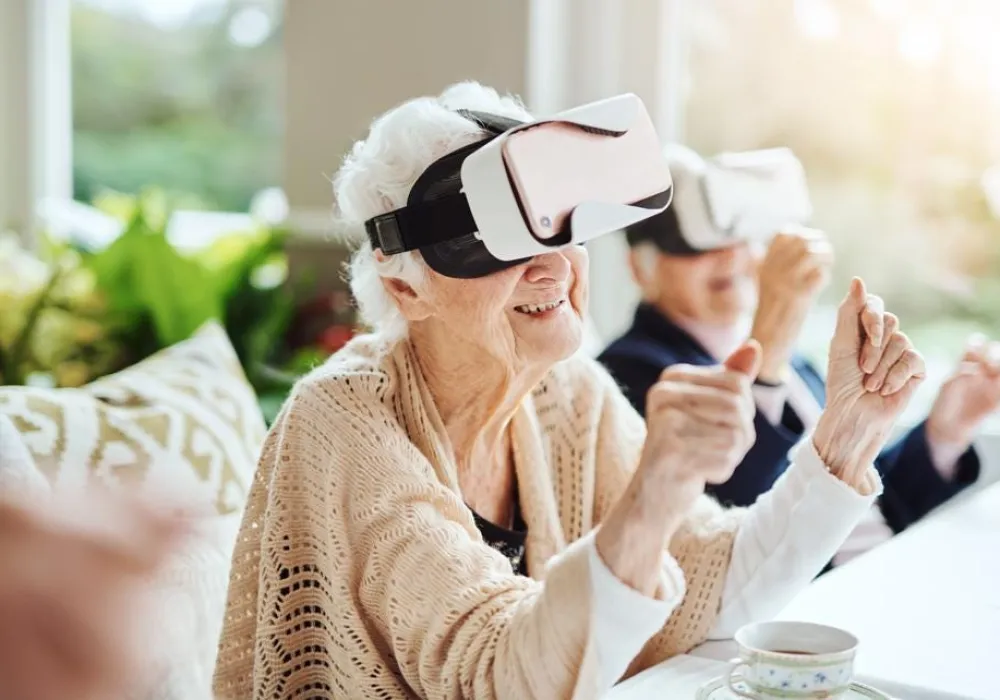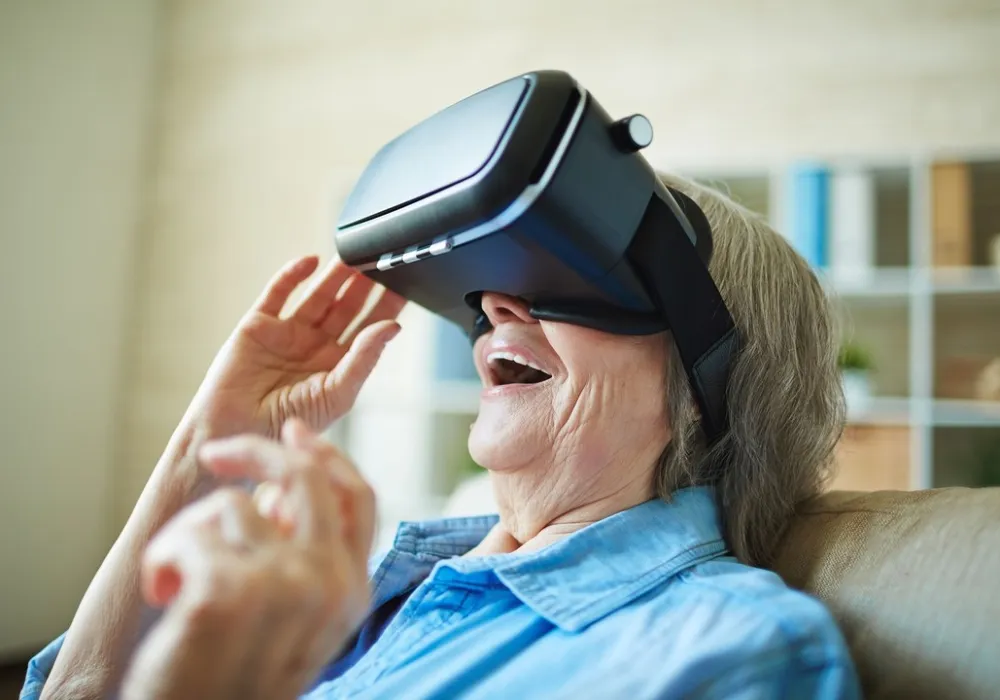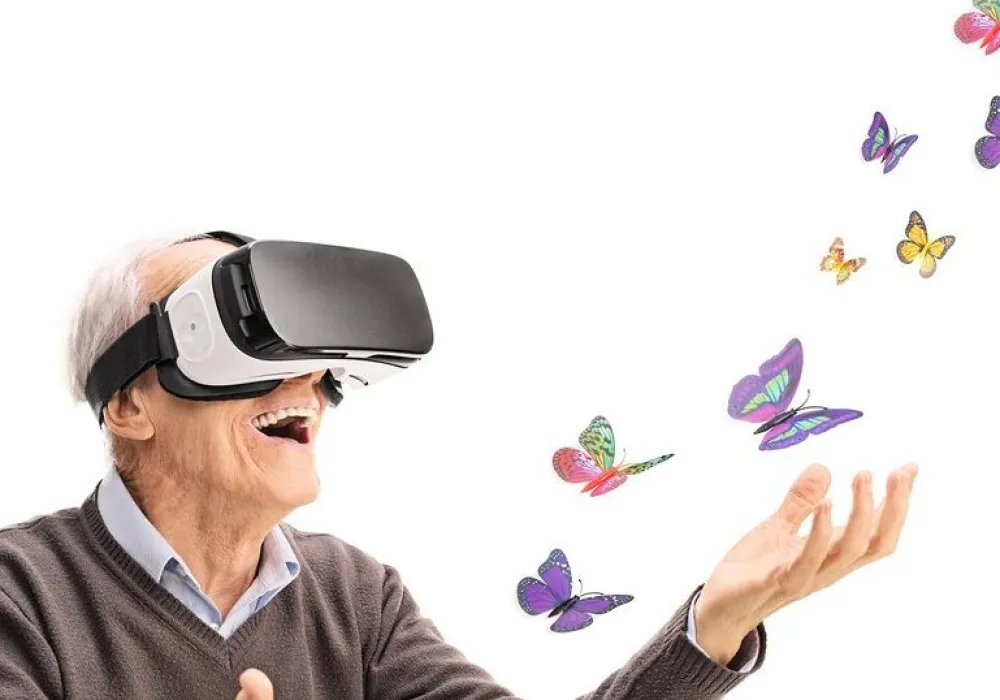Virtual Reality: Revolutionizing Senior Healthcare and Enhancing Well-being

In recent years, technology and virtual reality (VR) have made incredible progress, bringing about significant enhancements to the lives of senior citizens and those with movement disorders. These advancements have been applied across healthcare, socialization, and daily living, allowing individuals with limited mobility or abilities to take part in a variety of activities. In this article, we'll delve into the ways virtual reality is enriching the lives of seniors and those with mobility impairments in healthcare, daily living, and socialization, while also touching upon the future potential of these technologies.
VR: A Game Changer in Healthcare and Rehabilitation
The use of virtual reality in healthcare is on the rise, providing therapy and rehabilitation support for seniors and people with mobility impairments. By immersing patients in simulations of real-world scenarios, they can practice tasks like walking and climbing stairs, aiding in their recovery process. This is especially beneficial for those with limited mobility who may not be able to perform these actions in real life.
Stroke patients, for instance, can utilize VR simulations to relearn basic motor skills, improve balance, and enhance coordination. Virtual reality makes repetitive practice, crucial for stroke recovery, accessible and engaging. In the case of Parkinson's disease, VR can help patients improve their gait and balance by offering visual and auditory cues that encourage accurate and safe walking.

Virtual reality has also demonstrated potential in treating chronic pain and assisting seniors in managing symptoms related to conditions such as arthritis. By immersing patients in interactive environments, VR can distract them from their pain, leading to a decrease in symptoms and an overall improvement in their quality of life.
The advantages of virtual reality in healthcare go beyond improved outcomes. Greater patient engagement during therapy sessions can lead to better adherence to treatment plans and faster recovery times. Moreover, VR proves to be cost-effective by removing the need for expensive equipment and offering an intuitive interface for patients.
How VR Enhances Daily Life and Provides Independence for Seniors
Virtual reality not only enriches the daily lives of seniors in terms of socialization and entertainment but also helps them maintain their independence and increase their safety in everyday tasks.

Examples of how VR can support seniors in maintaining their independence include virtual personal shopping and home automation. With virtual reality, seniors can shop for groceries, clothing, and other necessities from the comfort of their homes. This enables them to continue engaging in essential activities without the risk of injury or fatigue.
Home automation through virtual reality can also boost safety and convenience for seniors. By employing VR technology, seniors can manage various aspects of their homes, such as lighting, temperature, and security systems. This not only makes their living environments more comfortable but also provides an added layer of protection, ensuring their well-being.
The Future of VR: Expanding Possibilities for Seniors and Movement-Impaired Individuals
As virtual reality technology advances, we can expect even more significant benefits for seniors and those with movement impairments. Cutting-edge applications of VR may encompass personalized therapy programs tailored to individual needs, state-of-the-art pain management techniques, and innovative methods for boosting cognitive function and memory.
Researchers are also investigating the potential of merging VR with other technologies, such as artificial intelligence (AI) and robotics, to develop more sophisticated and immersive experiences for seniors. AI-powered avatars could offer personalized companionship and support, while robotic assistants could aid seniors with physical tasks and mobility challenges.

An emerging area of interest involves the use of VR in fall prevention and detection. Falls pose a considerable risk to seniors, often resulting in injuries and a decline in overall health. By incorporating VR with sensors and wearable devices, seniors could engage in customized balance training programs that lower their risk of falls. Moreover, these systems could detect and notify caregivers when a fall occurs, ensuring timely medical attention and minimizing potential complications.
As virtual reality technology becomes more accessible and affordable, a wider range of seniors will be able to reap its benefits. This will drive increased demand for VR content specifically designed for seniors, opening new opportunities for businesses and content creators to cater to this expanding demographic.
Conclusion
Virtual reality technology has already proven to be an invaluable resource for seniors and movement-impaired individuals. In healthcare, VR has demonstrated its effectiveness as a therapy and rehabilitation tool, particularly for conditions like Parkinson's disease and stroke. By promoting patient engagement and reducing costs, VR has the potential to revolutionize healthcare.
Moreover, virtual reality is being utilized to enrich the daily lives of seniors through immersive experiences like virtual tours, social gatherings, and support groups, helping to alleviate feelings of boredom and confinement. As virtual reality technology continues to evolve and integrate with other technologies, such as AI and robotics, the possibilities for seniors and movement-impaired individuals will only expand.
As the global population continues to age, it is essential that we explore and implement innovative solutions to enhance the lives of seniors and movement-impaired individuals. Virtual reality is proving to be one such solution, and its ongoing development and application hold the potential to transform how we care for and engage with this growing demographic.